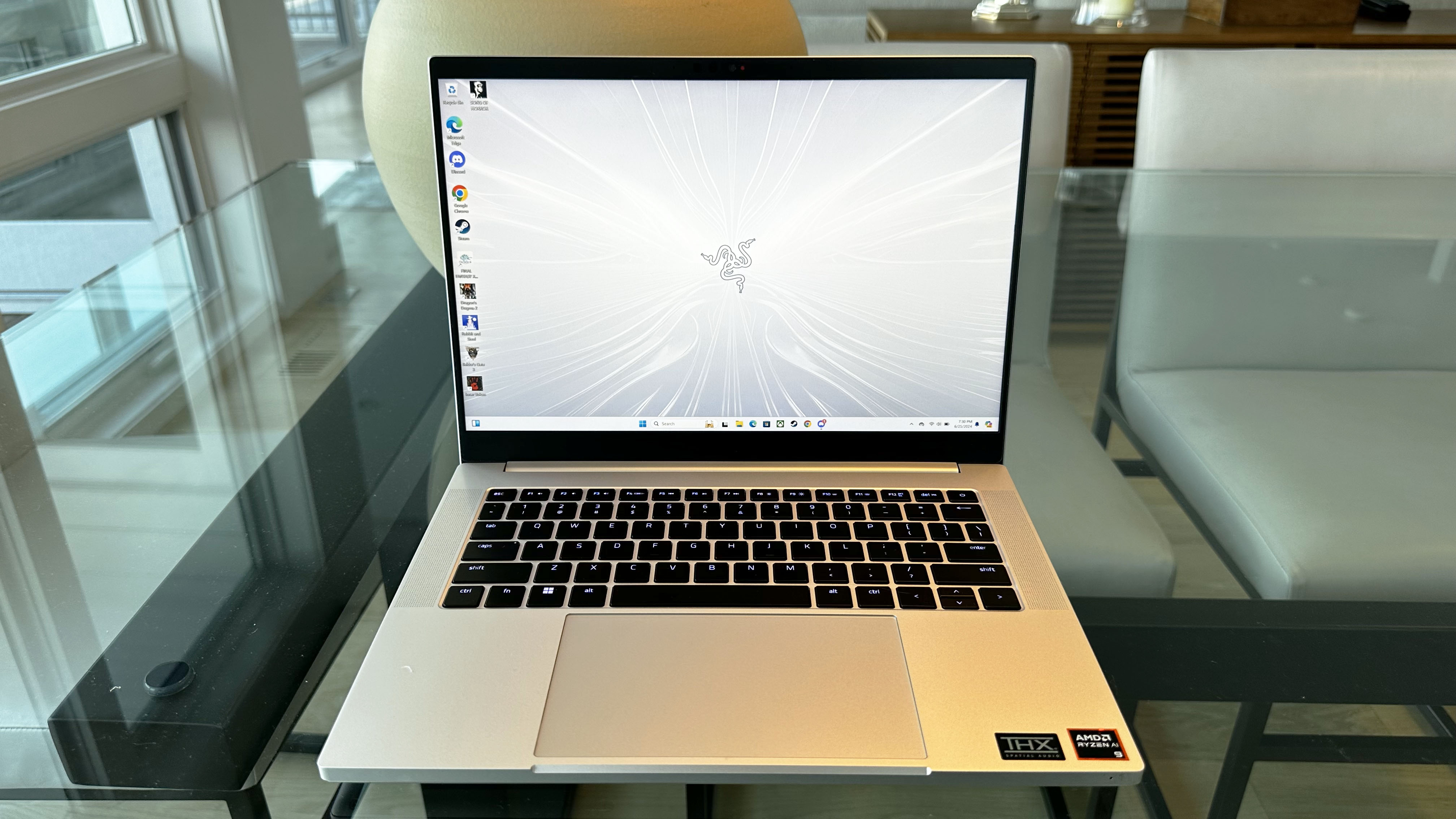
The Razer Blade 14 combines high-end performance with the portability of a 14-inch laptop chassis, making it a compelling choice for gamers on the go. Last year’s model had some of the best battery life we’ve seen on a gaming laptop, making it a shoo-in for our list of best gaming laptops.
With an updated Ryzen 9 CPU and an RTX 4070, the Razer Blade 14 (early 2024) model continues to offer blazing performance in a sturdy aluminum chassis. However, it doesn’t quite meet the battery life standards set by the Razer Blade 14 (mid-2023) model, which makes it a bit less compelling than the previous generation.
That battery shortcoming doesn’t mean the Razer Blade (early 2024) isn’t worth your time, but it does come with a few more caveats this time, so let’s get into it.
Razer Blade 14 (early 2024): Specs
Razer Blade 14 (early 2024): Price and configurations
The Razer Blade 14 (early 2024) starts at $2,199, offering an AMD Ryzen 9 8945HS CPU with an Nvidia GeForce RTX 4060 GPU, just like the new Asus Zephyrus G14. It also has 16 GB of memory and 1TB of storage space. This configuration is only available in the traditional Razer black and green colorway.
For an additional $500, you can upgrade the RAM to 32GB of memory and swap in the Nvidia RTX 4070 — a GPU that peppers our guide to the best gaming laptops. You cannot upgrade only the memory at this time. This $2,699 version of the Blade 14 comes in both the Black and Mercury colorways. While $2,199-$2,699 isn’t the most expensive price range for a gaming laptop, it is a pretty steep price for a laptop with an Nvidia RTX 4060 or 4070 GPU.
Razer Blade 14 (early 2024): Design
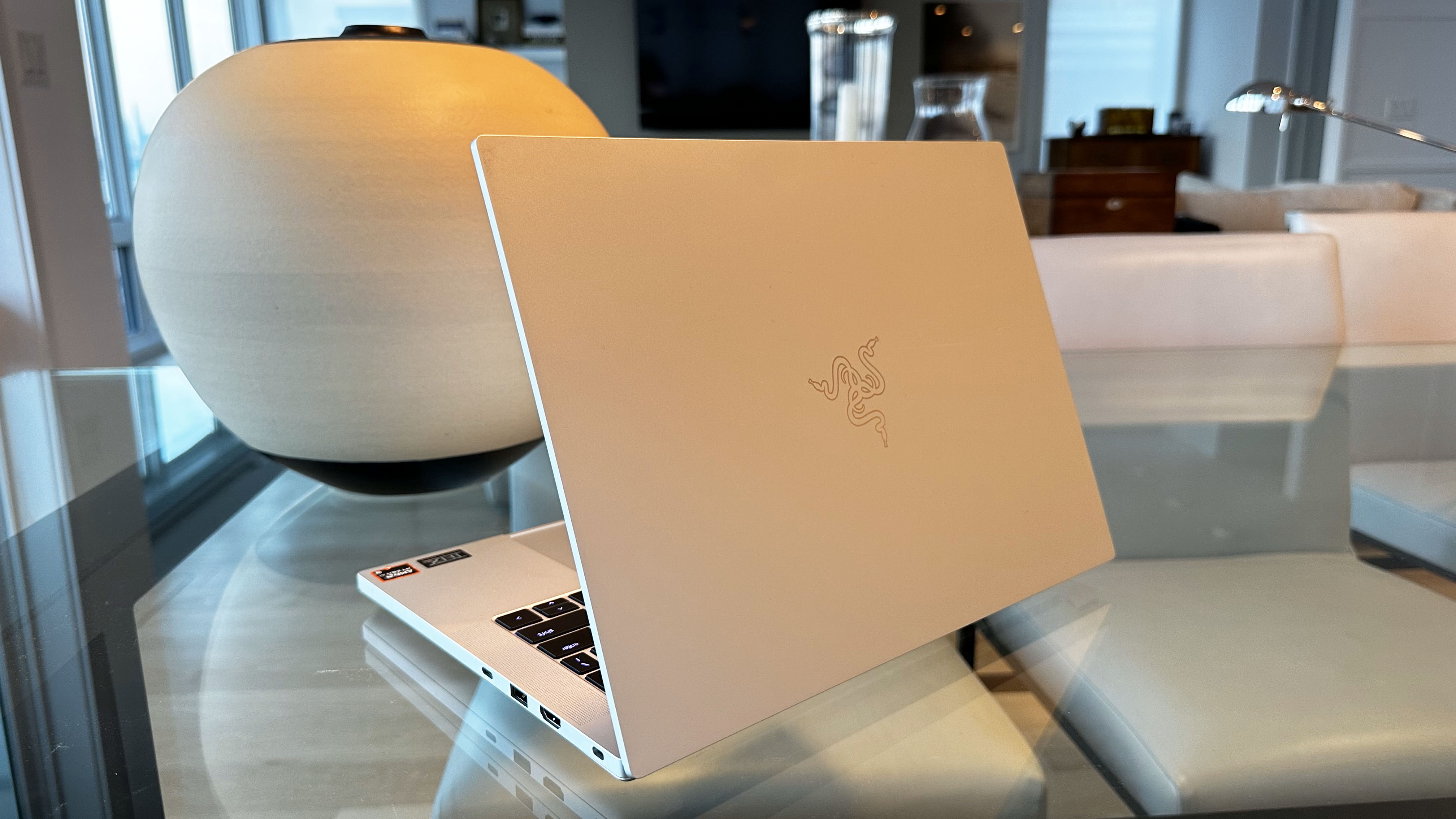
Razer has kept the Blade 14's exterior design mostly the same, utilizing a minimalist aluminum clamshell design reminiscent of the Apple MacBook Pro.
The Razer Blade 14 (early 2024) model is no exception, and the mercury-silver colorway of our review unit will only feed more Apple comparisons. This isn’t inherently a bad thing, but the Blade 14 may feel a bit boring for a gaming laptop. I will say that the mercury option is more resistant to fingerprints and smudges than the more traditional Razerblack chassis.
As far as travel goes, the Blade 14 is easily portable at 12.23 x 8.97 x 0.7 inches and 4.1 pounds. You can find plenty of laptop bags or backpacks that will suit the Blade 14 without needing to look too hard.

In fact, those dimensions are exactly the same as the 2023 Blade 14. So you aren’t adding any extra weight or thickness in choosing the newer generation of Blade 14 laptop. The bad news for Blade 14 is that some of its competition manages to be both thinner and lighter. In particular, the HP Omen Transcend 14 has similar dimensions at 12.3 x 9.2 x 0.7 inches but is only 3.7 pounds. The Asus ROG Zephyrus G14 (2024) is the thinnest and lightest of the bunch, measuring 12.3 x 8.7 x 0.6 inches and weighing 3.3 pounds.
While you aren’t liable to wreck your back toting around any of these gaming laptops, the Blade 14 is thicker and heavier. It’s not a massive difference in weight, but that extra eight ounces can make a difference.
Razer Blade 14 (early 2024): Ports
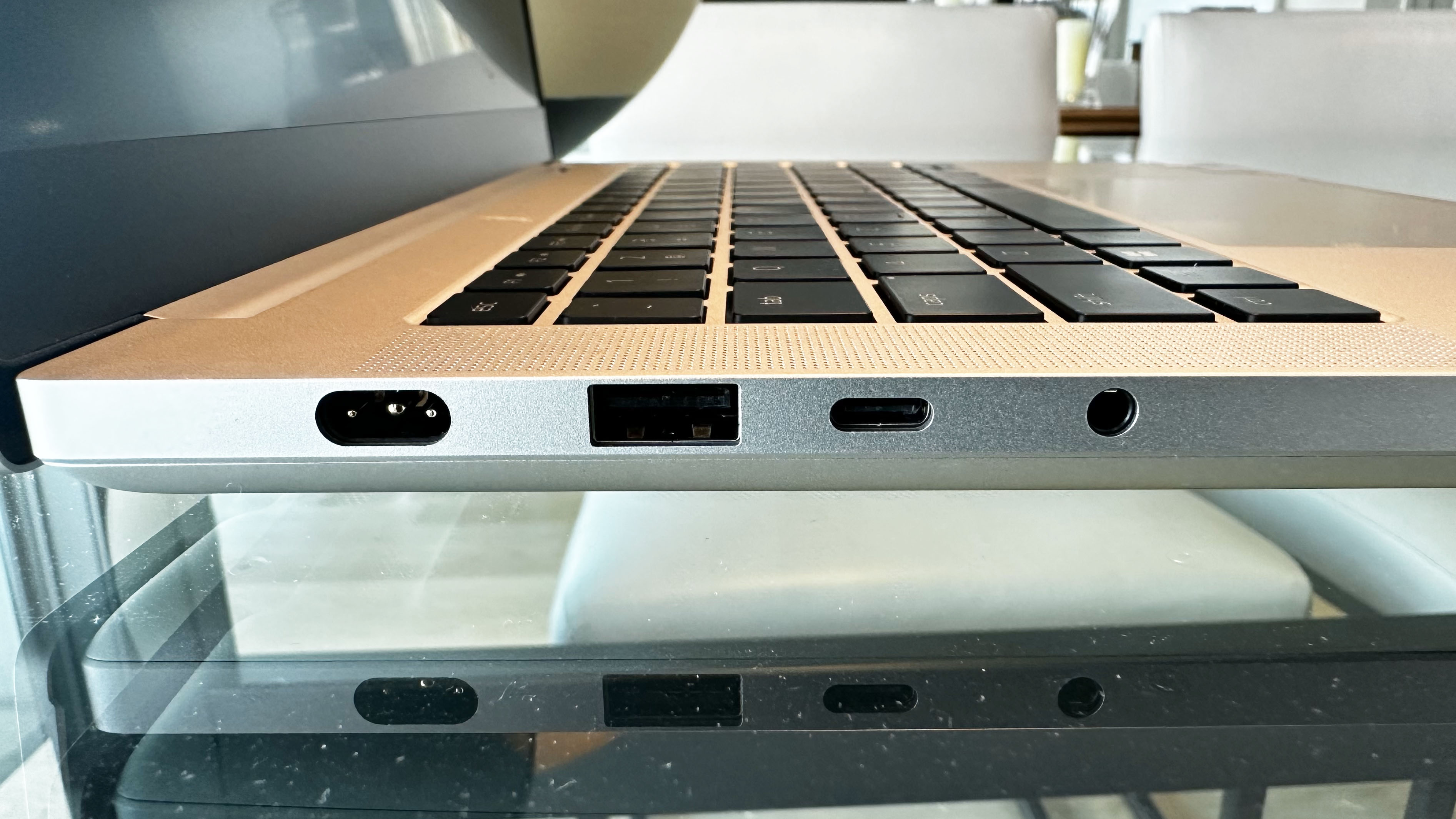
The Razer Blade 14 is a premium gaming laptop with the ports to match. Featuring two Thunderbolt 4 ports with 100 watts of power delivery, two USB 3.2 Gen 2 Type-A ports, one HDMI 2.1 output, and a 3.5mm combo audio jack, it should have enough ports for all of your gaming accessories.
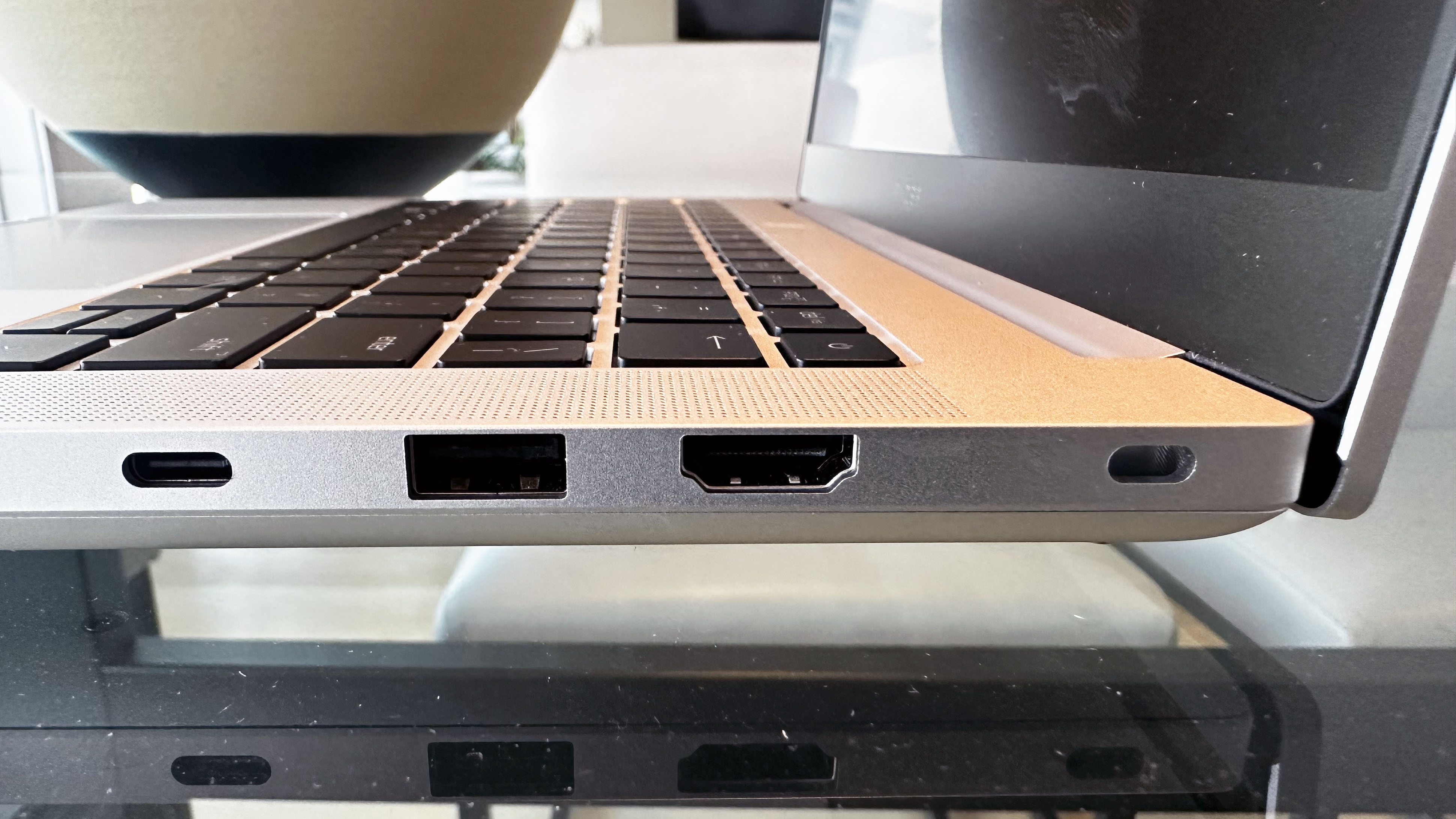
Unless you’re running a multi-monitor configuration, it's unlikely you’ll need additional connection options. However, if you want to use the Blade 14 for content creation, it may be worth investing in one of the best USB Type-C hubs or best laptop docking stations to optimize your streaming setup.
Razer Blade 14 (early 2024): Display
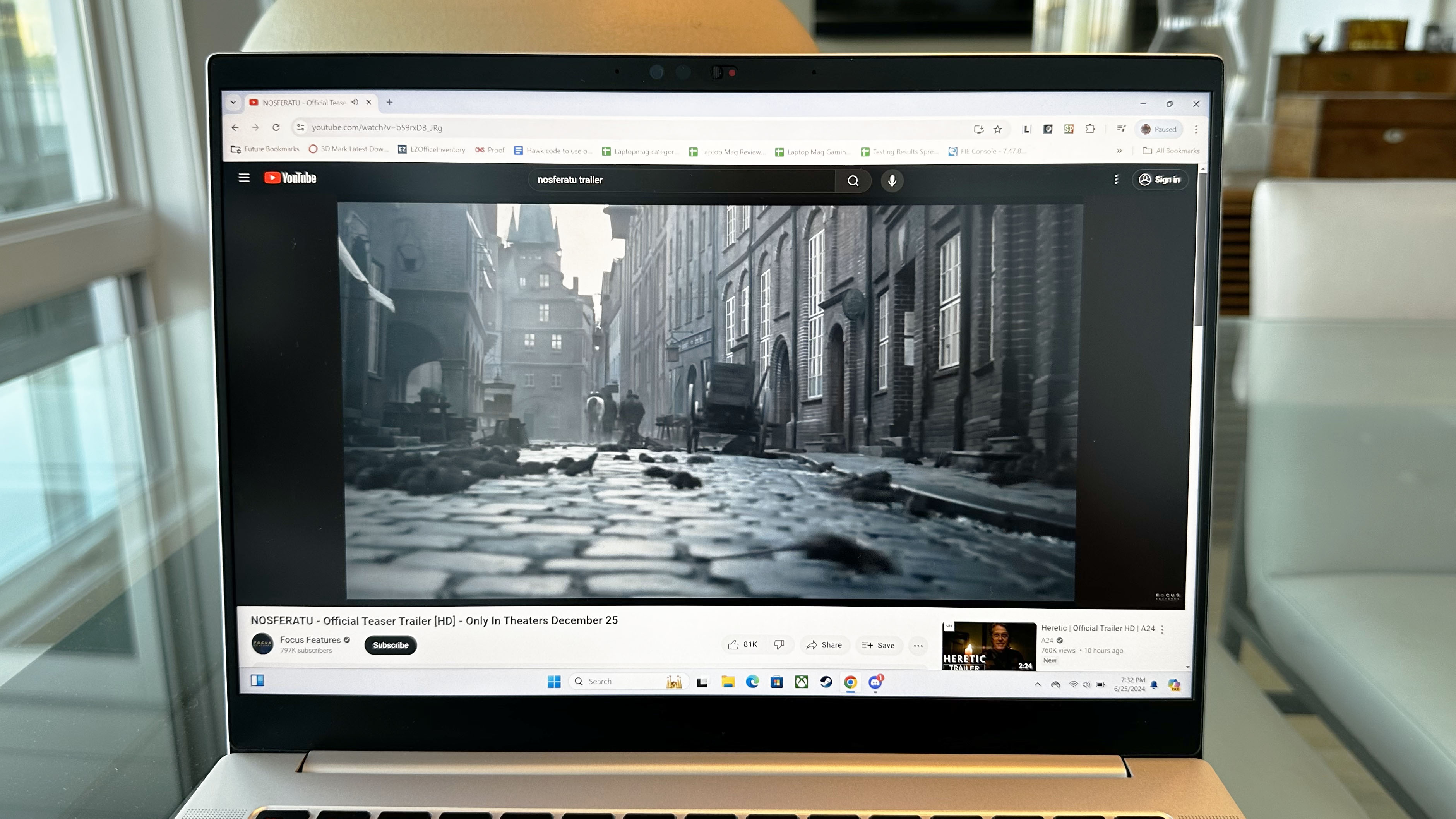
The Razer Blade 14’s QHD+ 240Hz matte anti-glare display panel is bright and vivid enough to capture color and depth across various entertainment options. I had little trouble viewing low-light environments while gaming, and the display held up well while streaming, although it did struggle a bit with dim scenes in movies and tv shows.
The Blade 14 (early 2024) captured the crisp details in the trailer for Robert Egger’s Nosferatu. However, it struggled a bit with the deep blacks, particularly during the shot of a lonely carriage trundling along a mountain path toward an ominous castle in the distance. The daytime scenes of rats on the streets of Victorian London were more vibrant and detailed in comparison. The QHD+ panel did a good job with the trailer but fell short compared to an OLED screen.
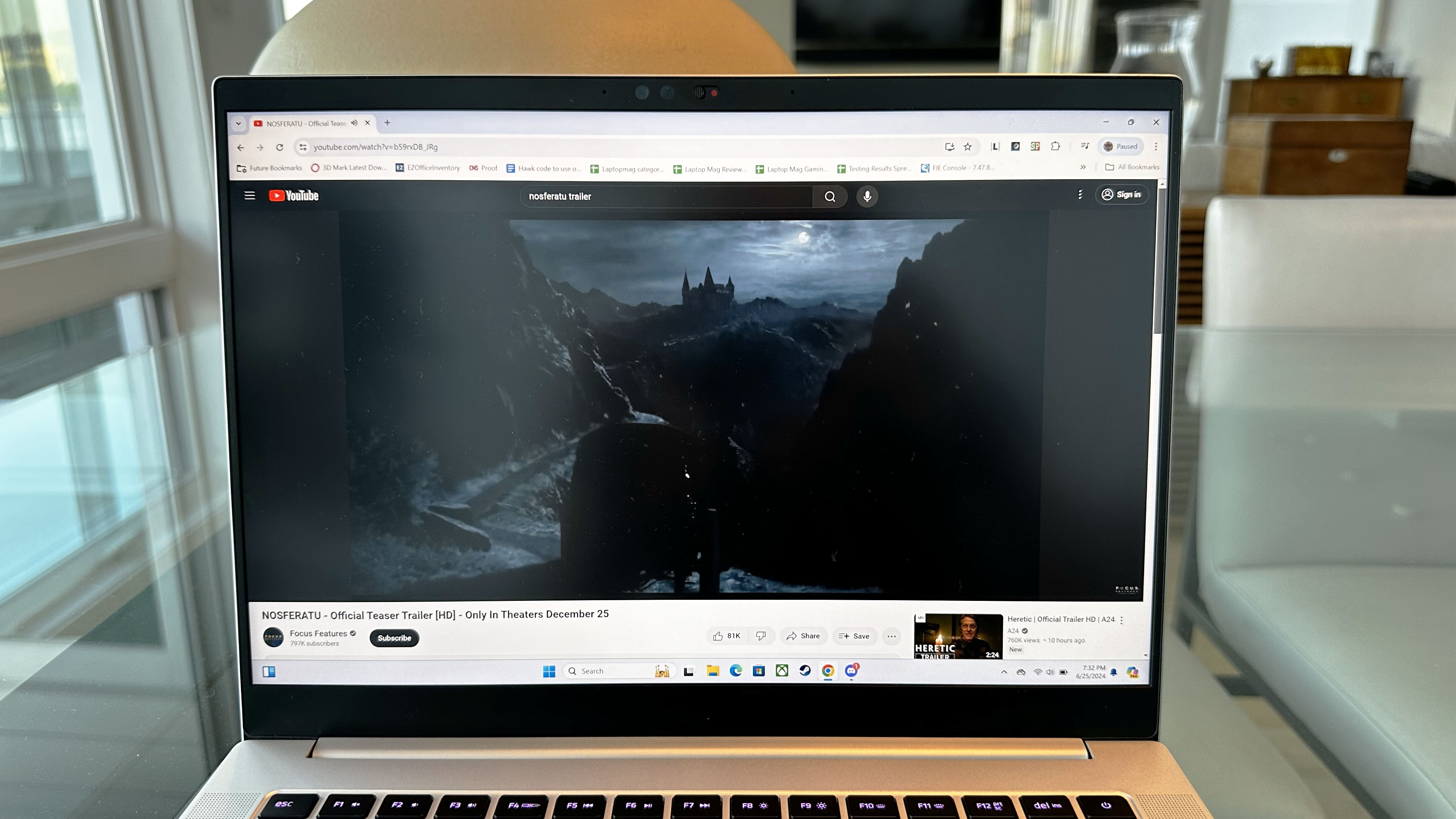
While gaming, I noticed far less of a struggle. The Blade 14 easily kept up with the Underdark cave sequences of Bladur’s Gate III and didn’t stutter much when forced to handle the player effects barrage of a Final Fantasy XIV raid. That said, I didn’t get around to testing too many horror games on the Blade 14. So while I easily got around in indie horror titles Inner Voices and Song of Horror, I did need to be careful of my Gamma settings to ensure I didn’t lose any terrifying details.
My experience is supported by our lab benchmarks, which report the panel as bright and relatively accurate but not quite as vibrant as the previous generation of Blade 14.
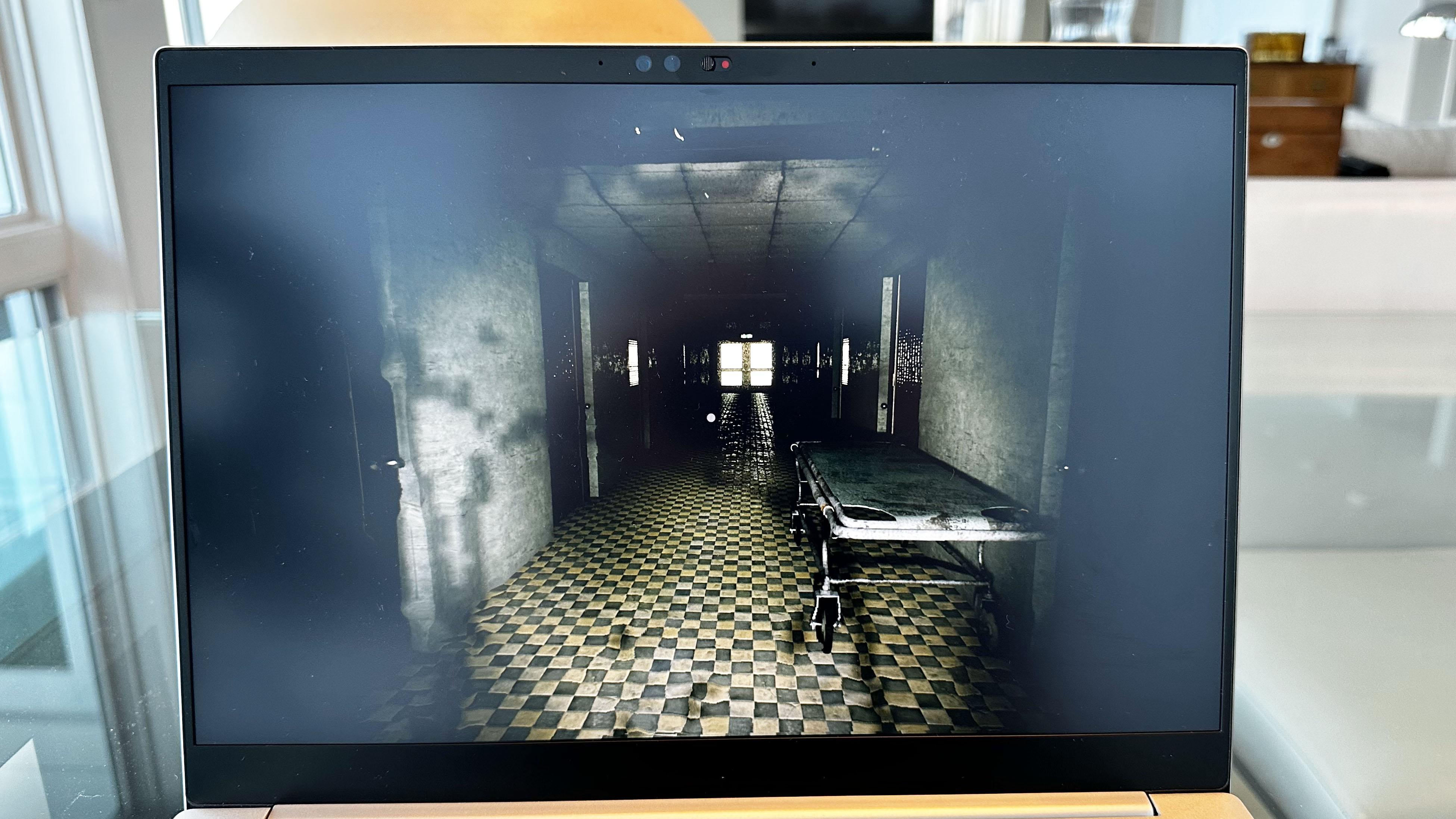
According to our display testing equipment, the Razer Blade 14 (early 2024) captured 78.9% of the DCI-P3 color gamut with a Delta-E accuracy of 0.23. The Razer Blade 14 (mid-2023) captured 114.3% of the DCI-P3 color gamut with an accuracy of 0.07. That’s a pretty big gap in both color gamut coverage and accuracy.
The Asus ROG Zephyrus G14 (2024) is a bit more vibrant than the 2024 Blade 14, covering 85.2% of the DCI-P3 color space with an accuracy of 0.23. The most vibrant of the bunch is the HP Omen Transcend 14, which covers 135% of the DCI-P3 color gamut with an accuracy of 0.29.
Regarding brightness, the Blade 14 (early 2024) is on the brighter side for a gaming laptop, with a display average of 446 nits. The Blade 14 (mid-2023) was a bit brighter, offering 464 nits of average brightness, while the Zephyrus G14 (387 nits) and Omen Transcend 14 (392 nits) didn’t quite beat the 400-nit mark. So if you prefer to watch your vampire movies with the house lights on, the Blade 14 has a peak brightness and anti-glare matte panel capable of keeping up with even the most dedicated daywalker.
Razer Blade 14 (early 2024): Keyboard and touchpad
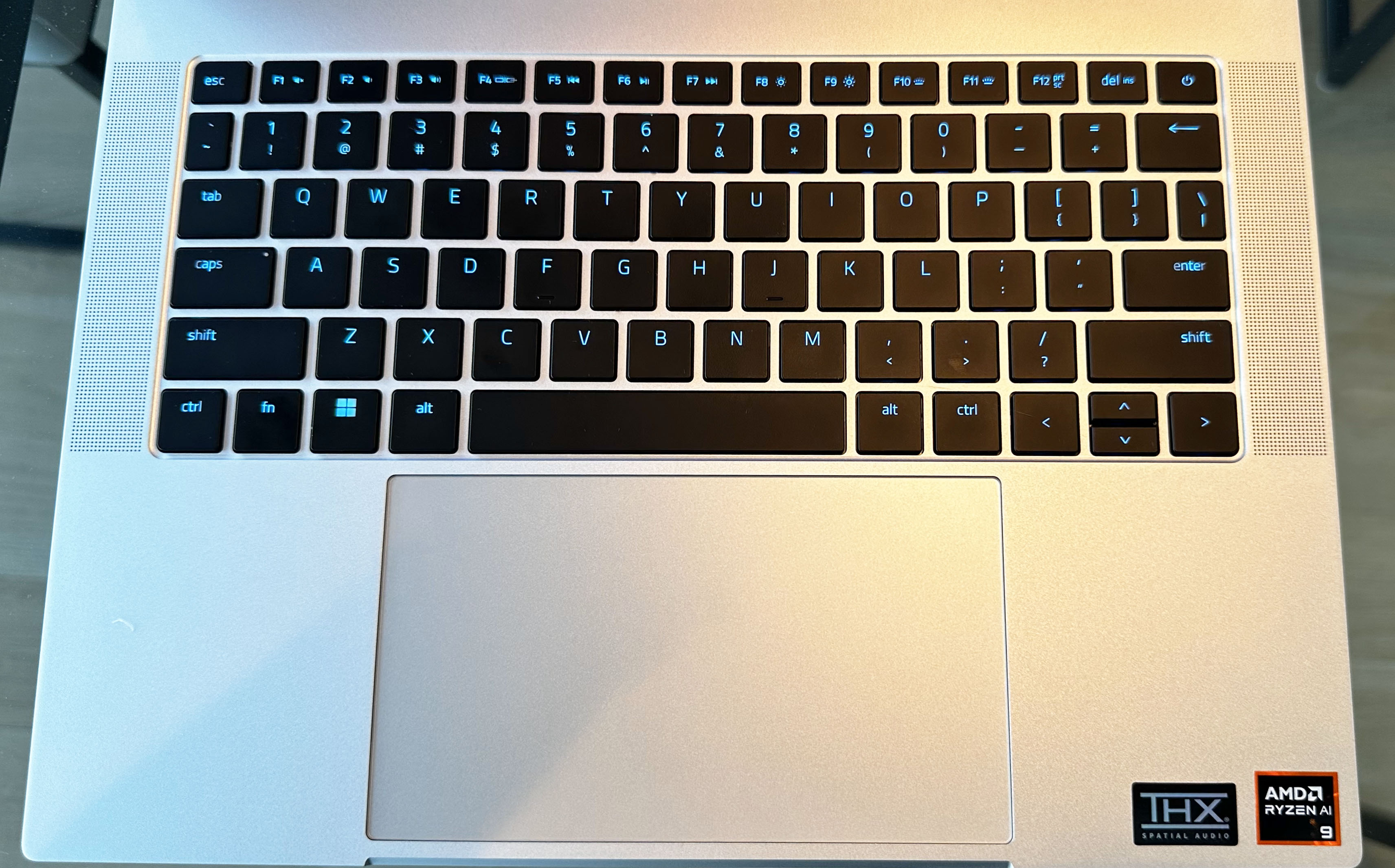
The Razer Blade 14 has a large 6 x 3.4-inch precision glass touchpad and an RGB keyboard powered by Razer Chroma. This is pretty much the standard setup for keyboards and touchpads on all Razer laptops, so these touchpoints will feel familiar to Razer owners.
The keyboard has solid click activation and is springy enough to feel comfortable under your hands. The per-key lighting is customizable in Razer Synapse, so you can sync it with your other gaming accessories. The keys are spaced nicely as well, so you don’t have much of a problem with any mistypes.
On the 10FastFingers advanced typing test, I averaged 86 words per minute (WPM), just below my 88 WPM average on my MacBook Pro 14.
The large touchpad on the Blade 14 is great for smooth cursor control, though it can take some adjusting to find the right-click zones if you’re coming from a laptop with a smaller touchpad. The palm rejection software is just as good as previous Blade models, so you don’t need to worry about accidentally moving the cursor in the middle of typing, even if your palms slide across the massive trackpad mid-word.
Razer Blade 14 (early 2024): Audio
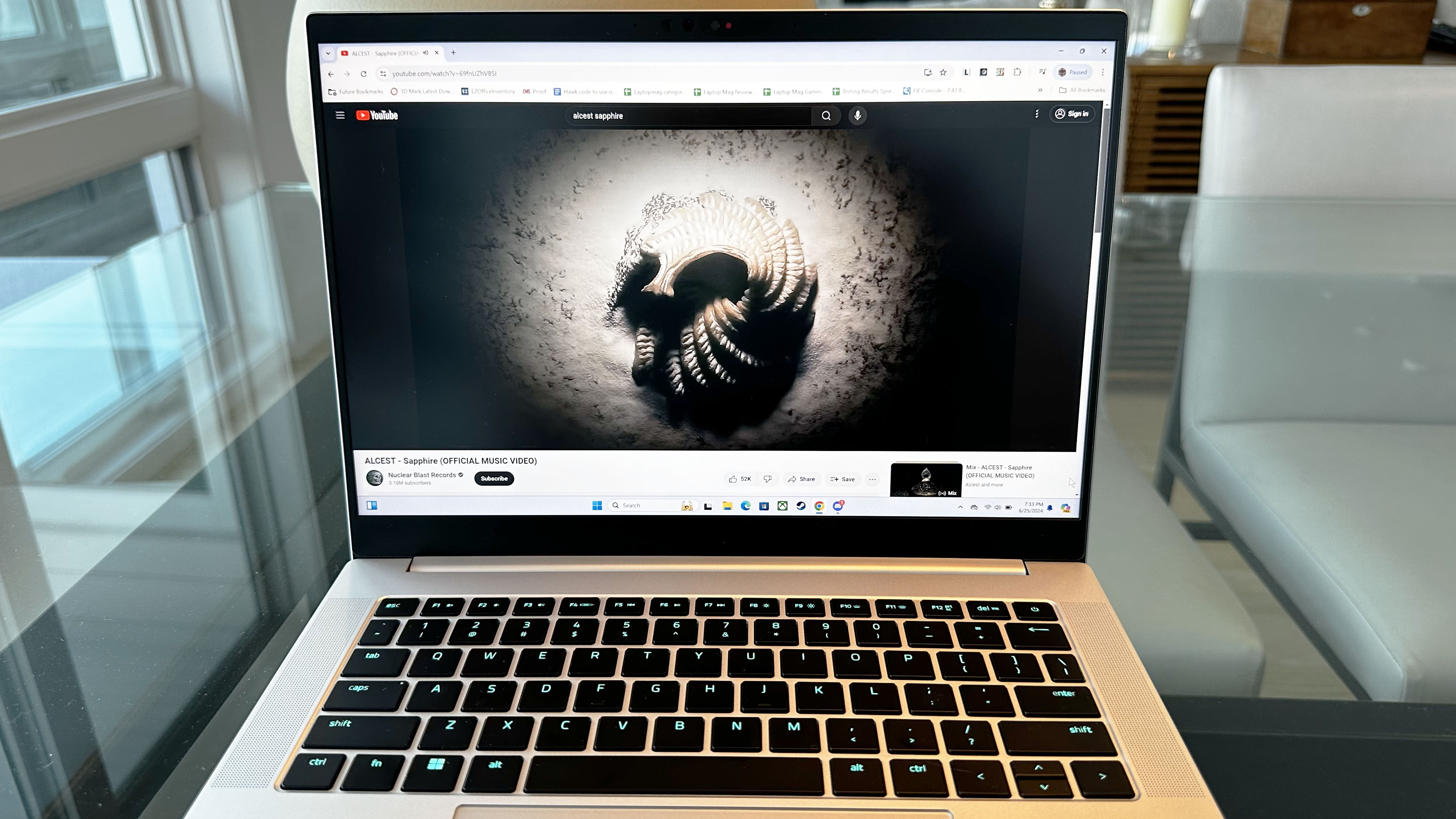
The Razer Blade 14's built-in stereo speakers are loud enough to provide quality sound even at lower volume ranges. The speakers easily keep up with the Blade 14’s fan noise levels, so you can game without a headset if you like.
As is often the case with laptop speakers, the audio quality gets metallic at higher volumes. This is most noticeable on tracks with high distortion values. So I noticed quite a bit of tinniness when listening to French post-black metal band Alcest’s “Sapphire” at volumes above 60 percent. However, Chappell Roan’s queer pop anthem “Good Luck, Babe” sounded clean and clear even at max volume.
While gaming, this tin-quality wasn’t too problematic until I stepped back into Final Fantasy XIV: Shadowbringers’ Delubrum Reginae raid. I heard the already discordant “The Queen Awakens” with added distortion. I very quickly opted to shut the speakers down for that encounter. Granted, the song is designed to grate on your ears, so I can’t blame the Blade 14 too much for that one.
Of course, if you want immersive surround sound and high-quality audio, you’ll be better served with one of the best computer speakers, but they aren’t a must with the Blade 14. Just highly recommended.
Razer Blade 14 (early 2024): Graphics and gaming performance
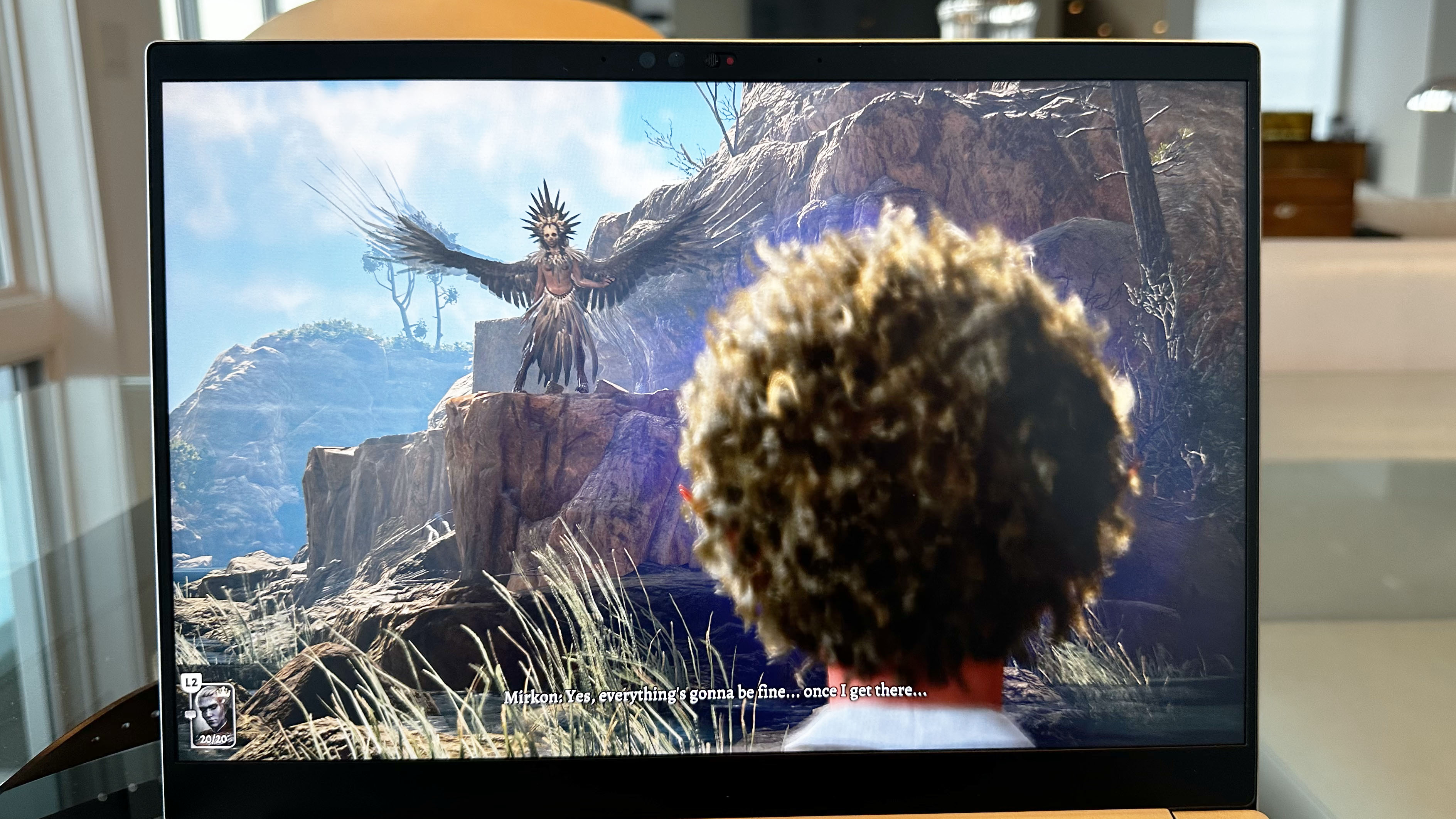
Gaming is the main reason to buy a Razer laptop, so performance testing focuses primarily on gaming performance.
I broke out a ton of video games to check how the Blade 14 handled several titles and genres. From my MMO addiction vehicle Final Fantasy XIV and current RPG obsessions Baldur’s Gate III and Dragon’s Dogma 2 to indie titles like Rabbit and Steel, Inner Voices, and Song of Horror. I didn’t have any trouble running any of those games on the Blade 14, but with an AMD Ryzen 9 8945HS and RTX 4070, I didn’t expect much trouble.
The Blade 14 easily kept up with packed FFXIV alliance raids with full ability effects enabled, managing a steady 60 frames-per-second (FPS) on high settings at the native QHD+ resolution. Dragon’s Dogma and Baldur’s Gate III also ran easily with vivid details and smooth framerates. In fact, the only real stumbling blocks I found were on the horror side with the Blade 14’s less vivid display panel.
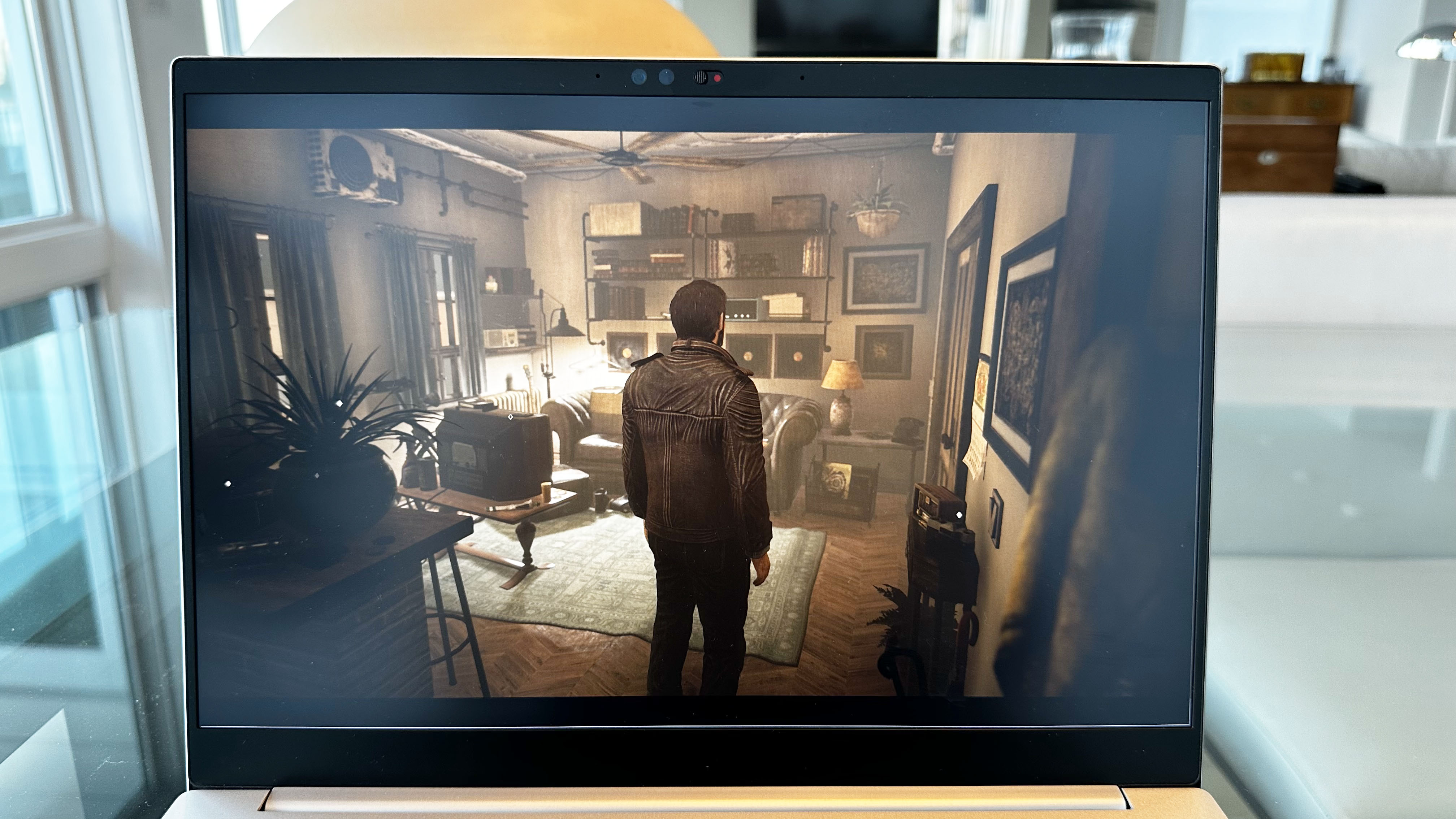
My gaming experience on the Blade 14 was easily backed up by our lab benchmarks. On 3DMark’s Fire Strike Ultra Direct X 11 4K benchmark, the Blade 14 averaged a score of 7,307, which is far better than its competition.
The Blade 14 (mid-2023) with an AMD Ryzen 9 7940HS CPU and RTX 4070 GPU averaged a score of 6,792, while the Zephyrus G14 with an AMD Ryzen 9 8945HS and RTX 4060 averaged only 5,575.
The HP Omen Transcend 14, with an Intel Core Ultra 7 155H CPU and RTX 4060 GPU, scored 4,924, trailing behind the other three laptops.
On 3DMark’s Port Royal ray tracing benchmark, the Blade 14 (early 2024) again led the pack with an average of 7,596, with the Blade 14 (mid-2023) scoring just below at 7,005, while the Zephyrus G14 (5,264) and Omen Transcend 14 (4,498) offered little competition.
With a multicore average of 13,781, the Blade 14 easily crushed our expectations for performance
Of course, the Zephyrus G14 and Omen Transcend 14 are powered by an Nvidia GeForce RTX 4060, which leads to lower GPU benchmarks, particularly on higher-end gaming tests like Fire Strike Ultra and Port Royal.
We also ran the laptops through a few gaming benchmarks using the built-in benchmarking tools in Far Cry 6 and Red Dead Redemption 2.
On Far Cry 6 at Ultra High settings and 1080p resolution, the Razer Blade 14 (early 2024) averaged a frame rate of 86 FPS, just behind the Razer Blade 14 (mid-2023), which averaged 87 FPS. The Zephyrus G14 averaged 69 FPS on Far Cry 6, while the HP Omen Transcend averaged 62 FPS.
On Red Dead Redemption 2 at Medium settings and 1080p resolution, the Razer Blade 14 (early 2024) averaged a frame rate of 73 FPS, which was identical to the Blade 14 (mid-2023). The Zephyrus G14 averaged 53 FPS, and the Transcend 14 averaged 46 FPS, which really highlights the difference between the RTX 4070 and RTX 4060 GPUs' particular strengths.
Razer Blade 14 (early 2024): Performance
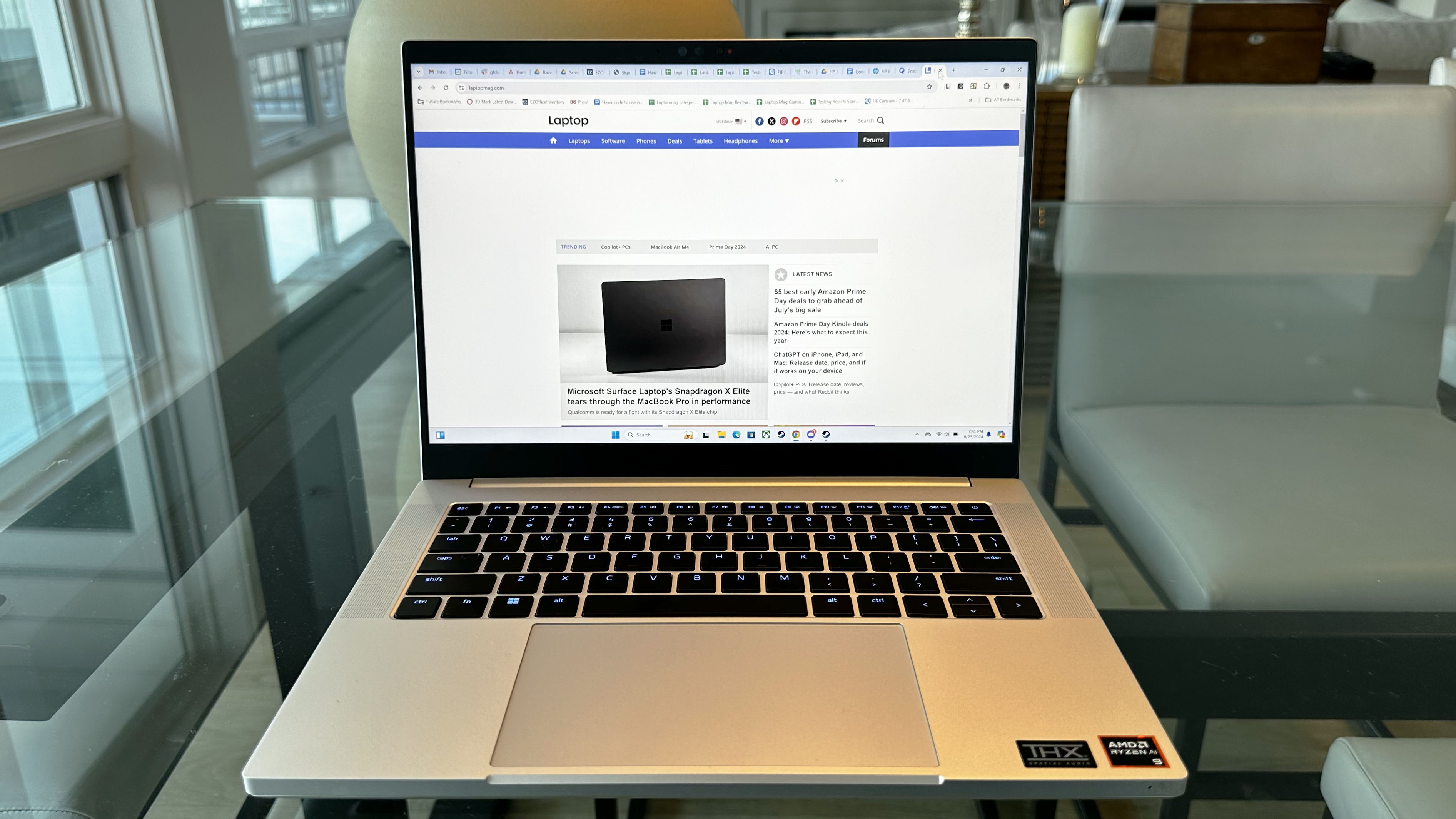
With an AMD Ryzen 9 8945HS AI CPU, 32GB of memory, and 1TB of storage space, there was not much I could do on the Razer Blade 14 that it couldn’t keep up with. Between my usual light Photoshop work, my 57 emotional support Chrome tabs, and Spotify and Discord running in the background, my work day was hardly a challenge.
Between the AI capabilities of the Ryzen 9 8945’s built-in NPU and increased processing power, the Blade 14 was perfectly optimized to easily handle our general productivity benchmarks.
On the Geekbench 6 CPU benchmark, the Blade 14 (2024) held up a respectable single-core average of 2,648 compared to the 2023 Blade 14 (2,671), 2024 Zephyrus G14 (2,614), and Transcend 14 (2,362).
With a multicore average of 13,781, the Blade 14 easily crushed our expectations for performance. The Razer Blade 14 (mid2023) averaged just 11,881 on Geekbench 6.2’s multicore benchmark, while the Zephyrus G14 averaged a multicore score of 12,246 and the HP Omen Transcend 14 averaged a multicore score of 13,248.
Most laptop usage requires multiple cores, so the multicore score on Geekbench is often the most important factor in judging performance. However, some major design and engineering programs require a higher single-core performance metric, so it is worth considering the balance of single-core and multicore performance.
Regarding video editing, our Handbrake test records how long a laptop takes to convert the 4K version of Tears of Steel to a 1080p 30 FPS format. The Blade 14 (early 2024) laptop took just 4:01 minutes to complete the task, while the ROG Zephyrus G14 was a close second at 4:21. The Razer Blade 14 (mid-2023) took a bit longer to complete the video encoding task (4:45) while the HP Omen Transcend was the slowest (5:04) to convert the file.
Finally, we tested the read/write performance of the laptops on our file copy test which takes a 25GB multimedia folder and times how long the laptop takes to copy the folder. The Blade 14 (early 2024) was the quickest at this, taking just 13.8 seconds to copy the folder for a transfer rate of 1,952 MBps. The HP Omen Transcend 14 took 15.5 seconds to copy the folder for a transfer rate of 1,730 MBps. The Zephyrus G14 was a bit slower at 20.8 seconds for a transfer rate of 1,289 Mbps, while the Razer Blade 14 (mid-2023) took the longest at 21.8 seconds for a transfer rate of 1,230 Mbps.
Razer Blade 14 (early 2024): Battery life
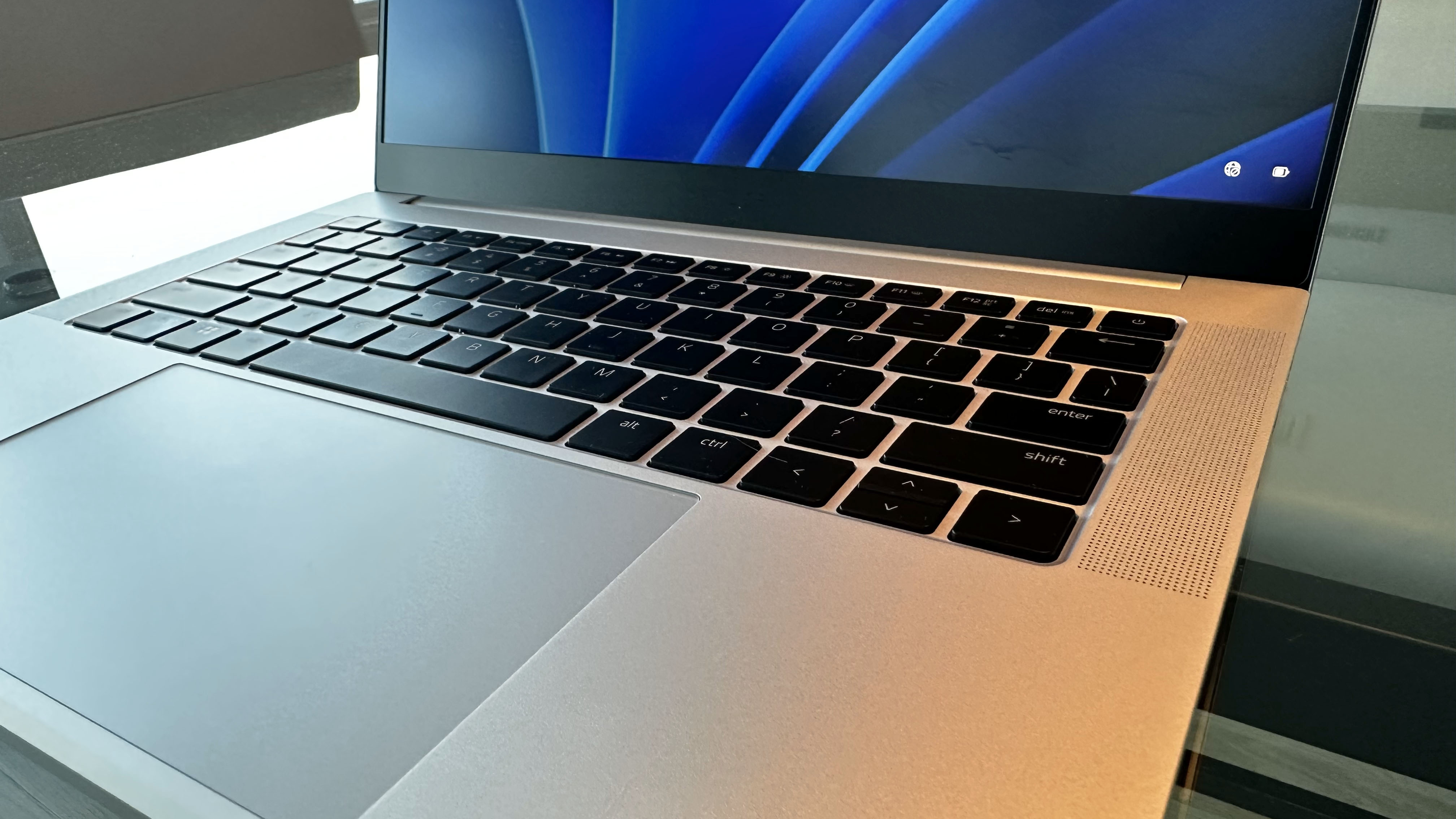
Gaming laptops are rarely known for having great battery life, but the Blade 14 (mid-2023) shocked us with its lengthy battery time. Unfortunately, while the Blade 14 (early 2024) model has pretty decent battery life for a gaming laptop, it won’t break any records. In my hands-on testing, I rarely went far from an outlet with the Blade 14 because I’d get through just over half of my work day before needing to get the Blade 14 charged back up.
Our lab results were similarly middling. On the Laptop Mag battery test, we set a laptop to 150 nits of brightness and have it surf the web continuously through a series of static, multimedia, and video web pages. The Blade 14 (early 2024) lasted 6 hours and 26 minutes on the Laptop Mag battery test, while the Blade 14 (mid-2023) beat that mark by over 2 hours at 8:34.
The loss of two hours and eight minutes is a large drop in battery life from generation to generation, and it’s the most compelling reason to consider the older Blade 14 instead.
The Asus ROG Zephyrus G14 (8:15) also lasted much longer than the 2024 Blade 14, though the HP Omen Transcend 14 (4:09) made every other 14-inch gaming laptop look better by comparison.
On the PCMark 10 Gaming battery test, with the laptop still set to 150 nits of brightness, the Blade 14 (2024) lasted a respectable 1 hour and 52 minutes. This was just a bit longer than the Blade 14 (2023) model, which lasted 1:46 and is quite impressive compared to the Zephyrus G14 (1:03) and the Transcend 14 (0:58).
Razer Blade 14 (early 2024): Webcam

The Blade 14's built-in webcam is of acceptable quality and has a nice, easy camera shutter for increased privacy. Details are a bit fuzzy on the webcam feed, but the colors are rather accurate. It’s not a dim webcam feed either, so you don’t need to be in extreme light in order to get a decent picture for the occasional video call.
Of course, if you plan to use the Blade 14 for streaming or frequent video calls, I recommend getting one of the best webcams so you get a less grainy feed.
Razer Blade 14 (early 2024): Heat
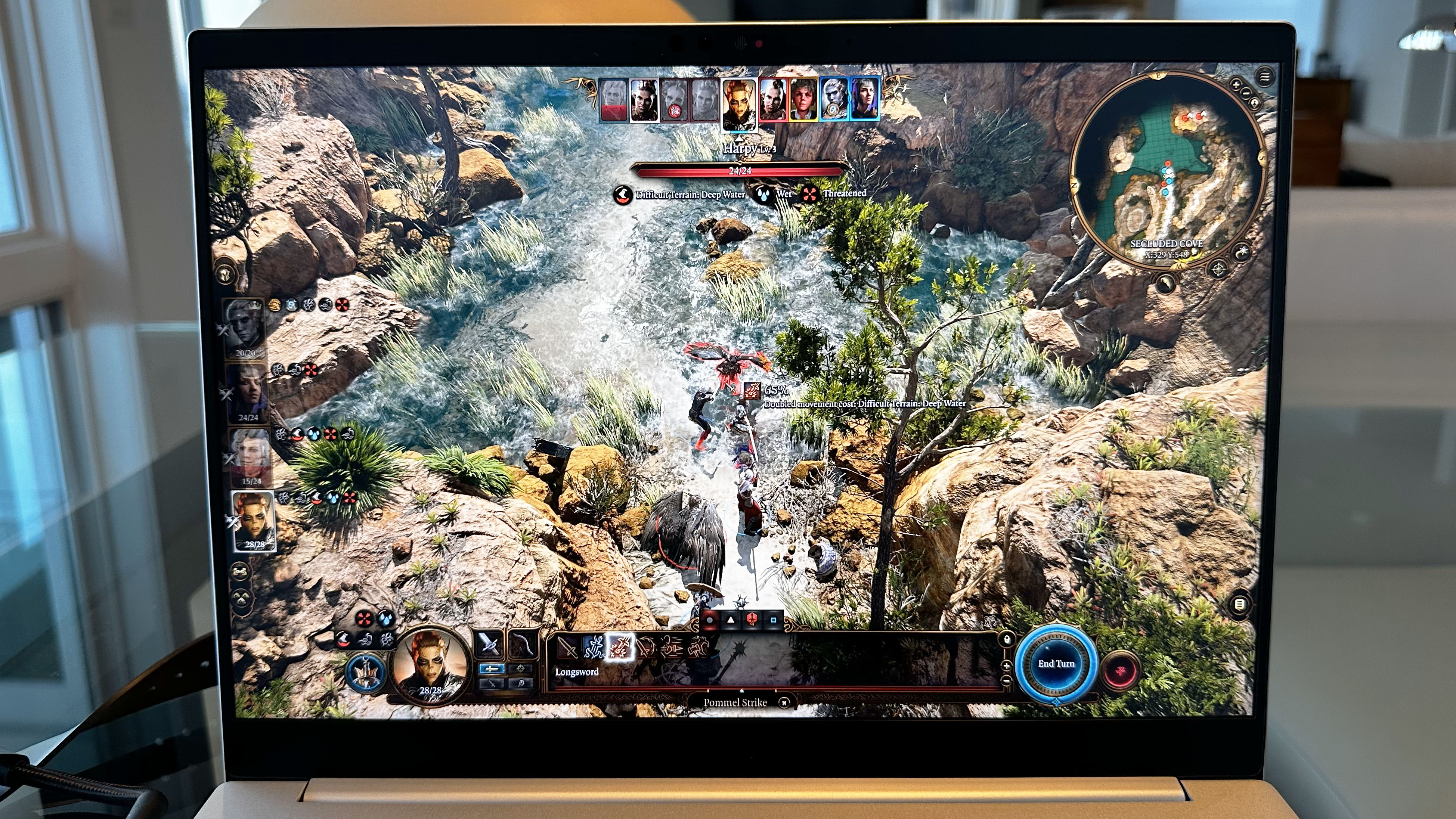
Heat can be a problem for a gaming laptop, as the format crams a lot of computing power into a clamshell chassis. Razer uses a vapor chamber cooling system and fans to try and keep the Blade 14 from overheating, but you may still find that your fingers end up getting a bit toasty on the WASD keys after a long gaming session.
On the Laptop Mag gaming heat test, we run the laptop through five loops of Metro Exodus Enhanced Edition’s Extreme benchmark and measure the heat at multiple points on the chassis with an infrared thermometer. The Blade 14 hit a peak of 133 degrees Fahrenheit on the rear underside near the riser, which is well above the Laptop Mag comfort threshold of 95 degrees. So you’ll definitely want to avoid gaming with the Blade 14 on your lap.
After five runs of Metro Exodus, the keyboard hit a max of 107 degrees Fahrenheit between the ‘G’ and ‘H’ keys, which is more than a little uncomfortable. In my own testing, I did notice the Blade 14 took about an hour to ramp up to a high heat while playing Dragon’s Dogma 2, but it still may be worth using a separate keyboard for longer gaming sessions.
Razer Blade 14 (early 2024): Software and warranty
The Blade 14 has a one-year limited warranty which covers everything but the battery, and a two-year limited battery warranty. You can opt into RazerCare’s Essential for Blade and Elite For Blade optional coverage for a fee.
If you want to see how Razer's customer service performed in our annual ranking, check out our Tech Support Showdown list.
Bottom line
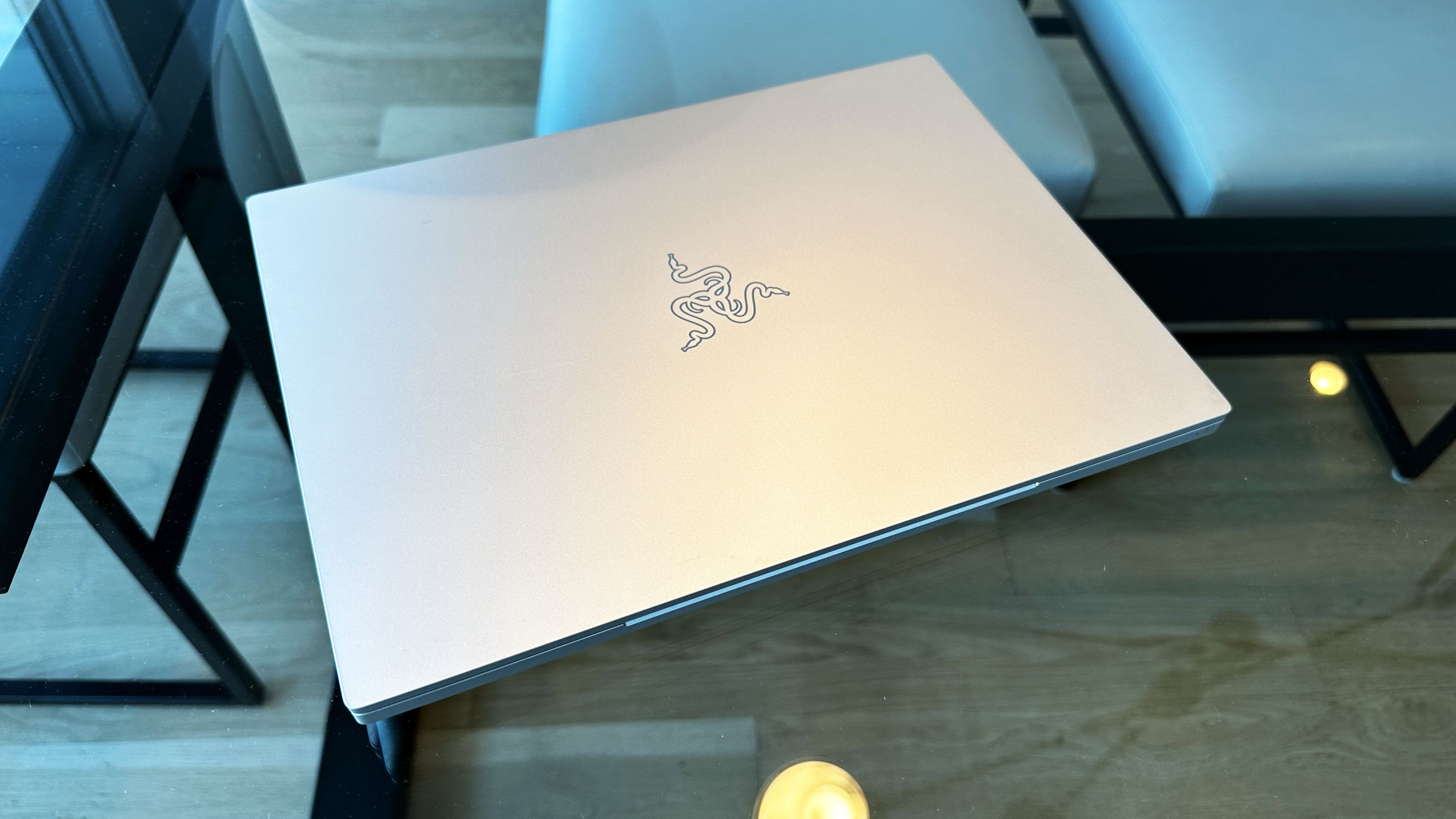
There are plenty of reasons to recommend the Razer Blade 14 (early 2024), from its fast performance, smooth graphics, impactful speakers, and bright display. However, it does fall short of the previous generation when it comes to displaying vivid color and lasting for a full day on battery. Both the 2023 and 2024 versions of the Blade 14 could get rather hot when gaming, making it imperative to use an external keyboard or mouse for lengthy game sessions.
The Blade 14 starts at $2,199, and the configuration we tested retails for $2,699. While this is hardly expensive compared to the Razer Blade 16, which can easily be configured to cost over $4,000, it is on the pricey side for a gaming laptop with an Nvidia GeForce RTX 4070 GPU. The good news is that more and more 14-inch gaming laptops are being built every year, so you have plenty more options to choose from. The bad news is that it makes it harder to justify Razer’s price point.
If you love Razer products and need a new gaming laptop, the Blade 14 does offer a good balance of portability and power. And it isn’t egregiously expensive. But if you have a 2023 Blade 14, there really isn’t much reason to upgrade.







